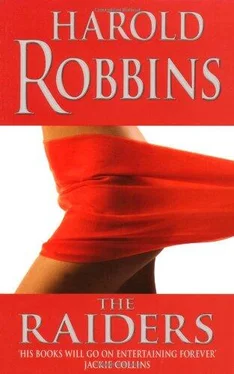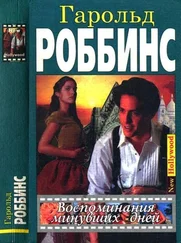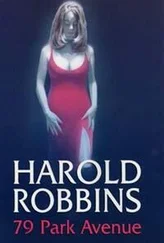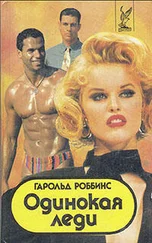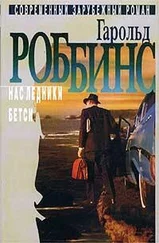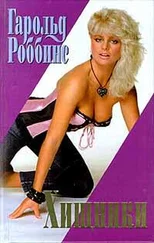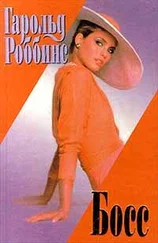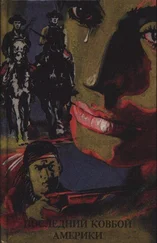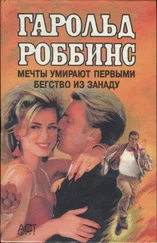Гарольд Роббинс - The Raiders
Здесь есть возможность читать онлайн «Гарольд Роббинс - The Raiders» весь текст электронной книги совершенно бесплатно (целиком полную версию без сокращений). В некоторых случаях можно слушать аудио, скачать через торрент в формате fb2 и присутствует краткое содержание. Жанр: Современная проза, на английском языке. Описание произведения, (предисловие) а так же отзывы посетителей доступны на портале библиотеки ЛибКат.
- Название:The Raiders
- Автор:
- Жанр:
- Год:неизвестен
- ISBN:нет данных
- Рейтинг книги:3 / 5. Голосов: 1
-
Избранное:Добавить в избранное
- Отзывы:
-
Ваша оценка:
- 60
- 1
- 2
- 3
- 4
- 5
The Raiders: краткое содержание, описание и аннотация
Предлагаем к чтению аннотацию, описание, краткое содержание или предисловие (зависит от того, что написал сам автор книги «The Raiders»). Если вы не нашли необходимую информацию о книге — напишите в комментариях, мы постараемся отыскать её.
The Raiders — читать онлайн бесплатно полную книгу (весь текст) целиком
Ниже представлен текст книги, разбитый по страницам. Система сохранения места последней прочитанной страницы, позволяет с удобством читать онлайн бесплатно книгу «The Raiders», без необходимости каждый раз заново искать на чём Вы остановились. Поставьте закладку, и сможете в любой момент перейти на страницу, на которой закончили чтение.
Интервал:
Закладка:
" United States Army?"
"He is your son, Jonas. He is a citizen of the United States. He would have been drafted early in 1944. He was with A Company, Seventh Armored Infantry Battalion, and crossed the Remagen Bridge on March 7, 1945 — one of the first hundred Americans across."
"Why did I never hear of him?"
"He enrolled at Harvard as Jonas Batista."
"Was he hurt in the war?"
"Yes. He was wounded twice, nearly killed the second time. He was awarded the Distinguished Service Cross. He was a lieutenant when he was wounded. They made him a captain then."
Jonas felt a burning weight in his stomach. A son ... A war hero. A Mexican lawyer. He looked into Sonja's face and saw a look of unalloyed satisfaction she was making no effort to conceal.
"I have to meet him, Sonja. When can I meet him?"
She nodded toward the bar. "He is sitting there. He came here with me. He decided to have a look at you, whether I introduced you this evening or not."
She raised a beckoning hand, and a young man slipped off his seat at the bar and walked toward their table.
Jonas rose, not entirely steadily. He was like a man who'd been hit with a sucker punch: trying to regain his equilibrium and be ready for a new and harder blow.
Then abruptly the young man stood before him and extended his hand. "I am your son," he said simply.
The younger Jonas was taller than his father. His shoulders were broad, his hips narrow, and Jonas could guess he was solidly muscled and probably played some sport or other. It was his face, though, that was impressive. It was long and strong and open, with sharp, bright-blue eyes and a broad, expressive mouth. His hair was blond. He didn't look like either of his parents. He looked like the sort of young man found among the officers of British guards regiments. He had been staring from the bar long enough to have satisfied his curiosity, and now he showed no sign of emotion, none of any kind.
Jonas had feared his voice would fail. He was right; it did. He was hoarse and whispery as he said, "I would have contacted you a long time ago, if I had known of you."
His son smiled — but only a measured smile, a polite smile, not a friendly one. "Perhaps it is better that we did not meet until now," he said quietly.
Jonas ran his hand across his eyes, wiping tears. "Well ... in any case, I am so very pleased ... so very, very pleased."
"As am I," said the younger Jonas blandly.
2
Never in his life did the young Jonas suppose he was the son of Virgilio Diaz Escalante. From the time when he became aware of such things, he understood that another man was his father. He was invited to call his mother's husband Padre, and he did; but he knew what it meant that his younger brother's name was Virgilio Pedro Escalante y Batista while his own name was Jonas Enrique Raul Cord y Batista.
He was baptized Cord y Batista. The family never deceived anyone about his origin. But the word bastardo was never used about him. That would have incurred the wrath of Don Pedro Escalante, and Don Pedro was a hidalgo whose wrath no one wanted to incur. Don Pedro, it was well known, was the father of several children outside his marriage. It was extremely unusual for a woman of good family to bear an illegitimate child and acknowledge it; but in this case the man involved had been a man of wealth and position, and the child had probably been conceived in a first-class cabin on a luxury liner, or if not there then in Berlin's finest hotel. The circumstances made it all acceptable to Don Pedro. His daughter-in-law had not succumbed to any cheap adventurer but to a man like himself, like his son Virgilio. And if Virgilio did not object, why should he?
The boy was always intensely curious about the man who was the origin of his names Jonas and Cord. Madre was never reticent about it. She told him that his father Jonas Cord was a wealthy American businessman. They had loved each other for a time, she said. Unfortunately, differences between them were very great, and they had not been able to marry.
What really mattered, she told the young Jonas often, was that she loved him, Padre loved him, and Abuelo — Grandfather — loved him, which was very important. As the family grew, he was always older brother. His brothers and sisters knew he was different, but they, too, had been reared to understand the difference didn't matter.
His brothers and sisters, when they were old enough to understand, watched Jonas struggling over the Sunday edition of The New York Times , which came in every Thursday's mail. Sometimes his mother marked stories and told him to be sure to read them. They were stories about Jonas Cord.
Padre was often away from the hacienda on business, Abuelo stayed at home. From the time Jonas learned to talk, his mother spoke to him sometimes in Spanish, sometimes in English, and his grandfather did the same. Jonas Cord, they told him, was a norteamericano , and he must learn to speak his father's language, not just as it was spoken by educated Mexicans but as it was spoken by the yanquis themselves. When norteamericanos came to the hacienda, for whatever reason, they were asked to talk with the boy, to let him study their accents.
Abuelo became his grandson's closest friend. He told him who Sonja's family was. To many Mexicans, Fulgencio Batista was only an upstart colonel and maybe worse. But Don Pedro Escalante, though he was a hidalgo, had secretly sent money to Pancho Villa. And now he was secretly giving money to his daughter-in-law's uncle.
He was catholic in his political predilections but not Catholic in his religious ones. Little Jonas was baptized by a priest, but he was not reared a Catholic. His father was not a Catholic, so Grandfather deemed it would be inappropriate someday to present a devout Catholic son to a non-Catholic father — and he had no doubt the family would someday present the son to the father.
Grandfather sent the boy to the grammar school in Cordoba. Boys there knew he was a bastard and not only that but the son of a yanqui , but they dared not torment the grandson of the hidalgo. One did and suffered a broken nose for his effrontery.
Abuelo carried a pistol on his hip. He taught his grandson to shoot, and when Jonas was only eight years old he gave him a .22-caliber seven-shot Harrington & Richards revolver. Jonas practiced with it, under the careful tutelage of the old man, and he became accurate, so accurate that his targets were spent shotgun shells set up on a sawhorse to be fired on from twenty meters.
One of the boy's proudest moments came when he was nine years old. His little sister Maria was a toddler. She had been in the kitchen, where the cook had given her a slice of pie, and she wandered out through the back door, across the dooryard and beyond. Shortly Jonas heard the cook scream. He was in his room reading, and before he ran out to see what was wrong he grabbed his revolver. He had an instinct that if some sort of danger was threatening, a gun might be useful.
He ran into the dooryard. The cook stood flushed, trembling, terrified, pointing at the little girl. Maria sat on the ground, ten meters beyond the dooryard fence. She too was frightened. Not two meters from her a coiled rattlesnake buzzed its warning. She had wandered near it when it was shedding its skin and was in a foul, aggressive mood. Whether or not it would strike was uncertain, but it might if she moved. It almost certainly would if anyone else came near.
Jonas closed his left hand around his right wrist and took steady aim on the rattlesnake. Its head was as big as four of the shotgun shells that were his usual targets. Still, this was no easy shot. He held his breath, which he did not usually do when he was shooting. He fired. The .22 slug split the head of the rattler, and it writhed and thrashed as the boy rushed up and grabbed his little sister to drag her away from it.
Читать дальшеИнтервал:
Закладка:
Похожие книги на «The Raiders»
Представляем Вашему вниманию похожие книги на «The Raiders» списком для выбора. Мы отобрали схожую по названию и смыслу литературу в надежде предоставить читателям больше вариантов отыскать новые, интересные, ещё непрочитанные произведения.
Обсуждение, отзывы о книге «The Raiders» и просто собственные мнения читателей. Оставьте ваши комментарии, напишите, что Вы думаете о произведении, его смысле или главных героях. Укажите что конкретно понравилось, а что нет, и почему Вы так считаете.
